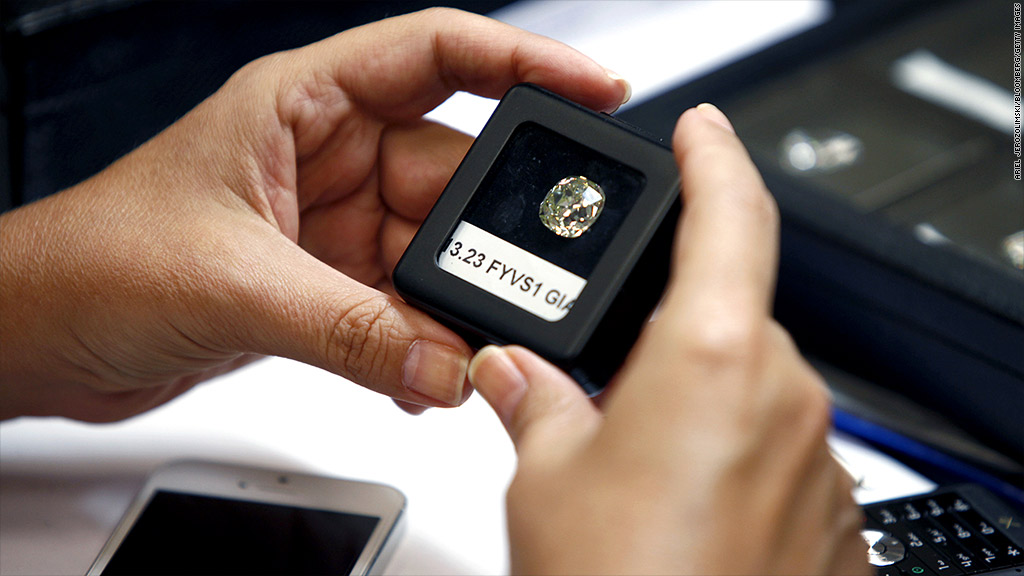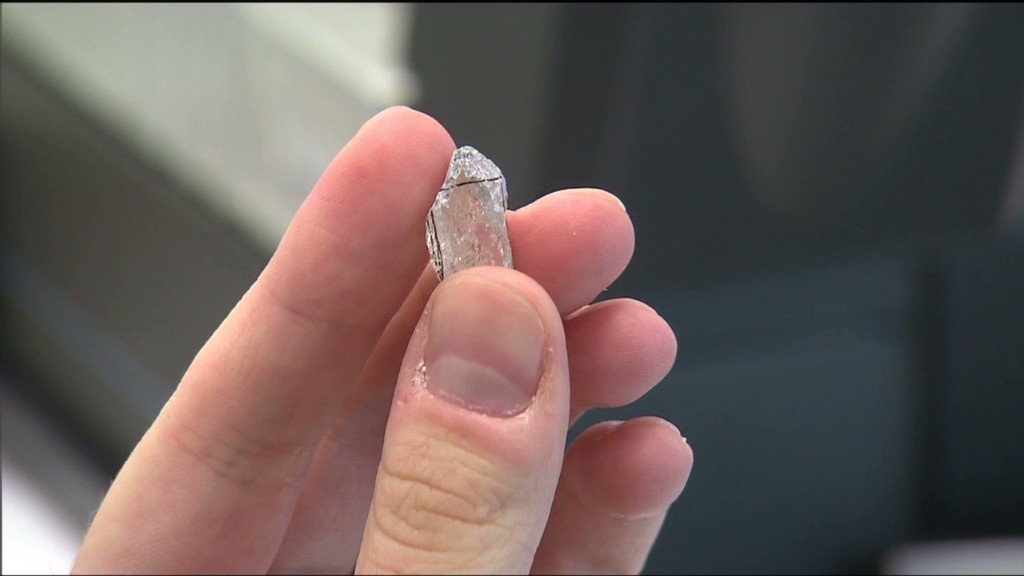
Israel is facing mounting pressure to clean up its vast diamond trade after experts warned it may be vulnerable to money launderers and other criminals.
Global money laundering watchdog Moneyval published a critical report earlier this month, calling on Israel to tighten its controls.
Israel is the world's largest exporter of polished diamonds, shipping over $6 billion last year, with about 37% destined for the U.S.
It also exports about $3 billion of rough diamonds each year.
Moneyval said it was concerned some dealers weren't digging deeply enough into buyers' backgrounds and financing.
Related: How to fence $50 million in stolen diamonds
Israel's chief diamond regulator Shmuel Mordechai told CNN that lawmakers were working to pass legislation by late this year or early next that would require more stringent due diligence and background checks.
The new law will also give him greater powers -- two forensic accountants would be hired to work full time to check for suspicious activities.
But Mordechai said existing rules had been effective in catching suspicious deals and clamping down on criminal activity, a view shared by industry analyst Chaim Even-Zohar.
"It is one of the most controlled businesses in the country, if not the most controlled," he said, noting that gaining access to Israel's main diamond exchange requires finger printing, eye scans and passport reviews. "It's easier to get into Fort Knox in America."
There has been some resistance among the country's 2,500 licensed dealers to yet more regulations, but most acknowledge that it's in their interests to ensure the industry has a clean reputation.
Related: Big tech scramble to buy Israeli firms
"If consumers believe the industry is involved in money laundering or terrorist financing, they will not buy diamonds," said Even-Zohar.

About 40% of the diamonds imported into the U.S. come from Israel, based on dollar value, according to a recent U.S. government report.
Israel also exports large quantities of diamonds to Hong Kong, Switzerland and Belgium.
-- CNN's Michael Schwartz in Jerusalem contributed to this article.
